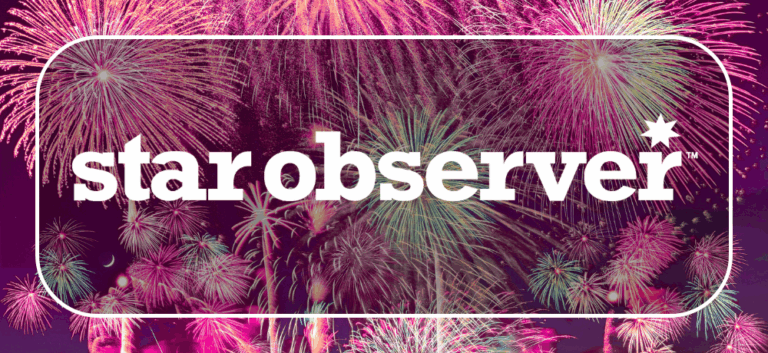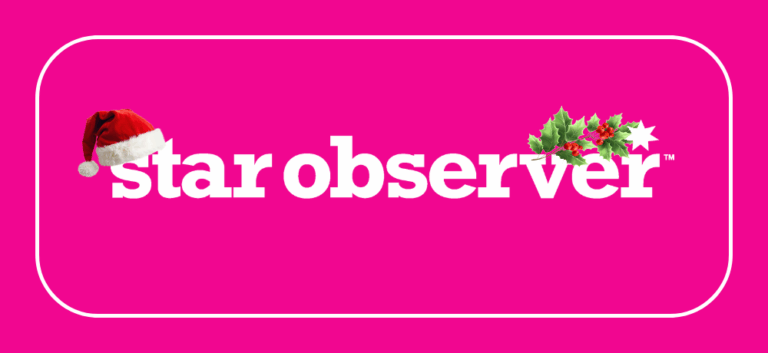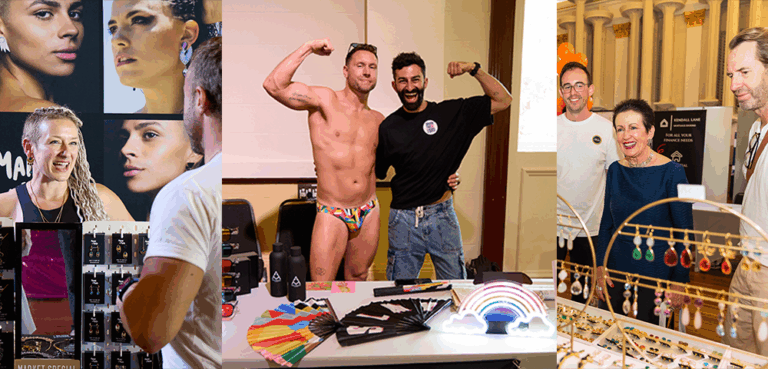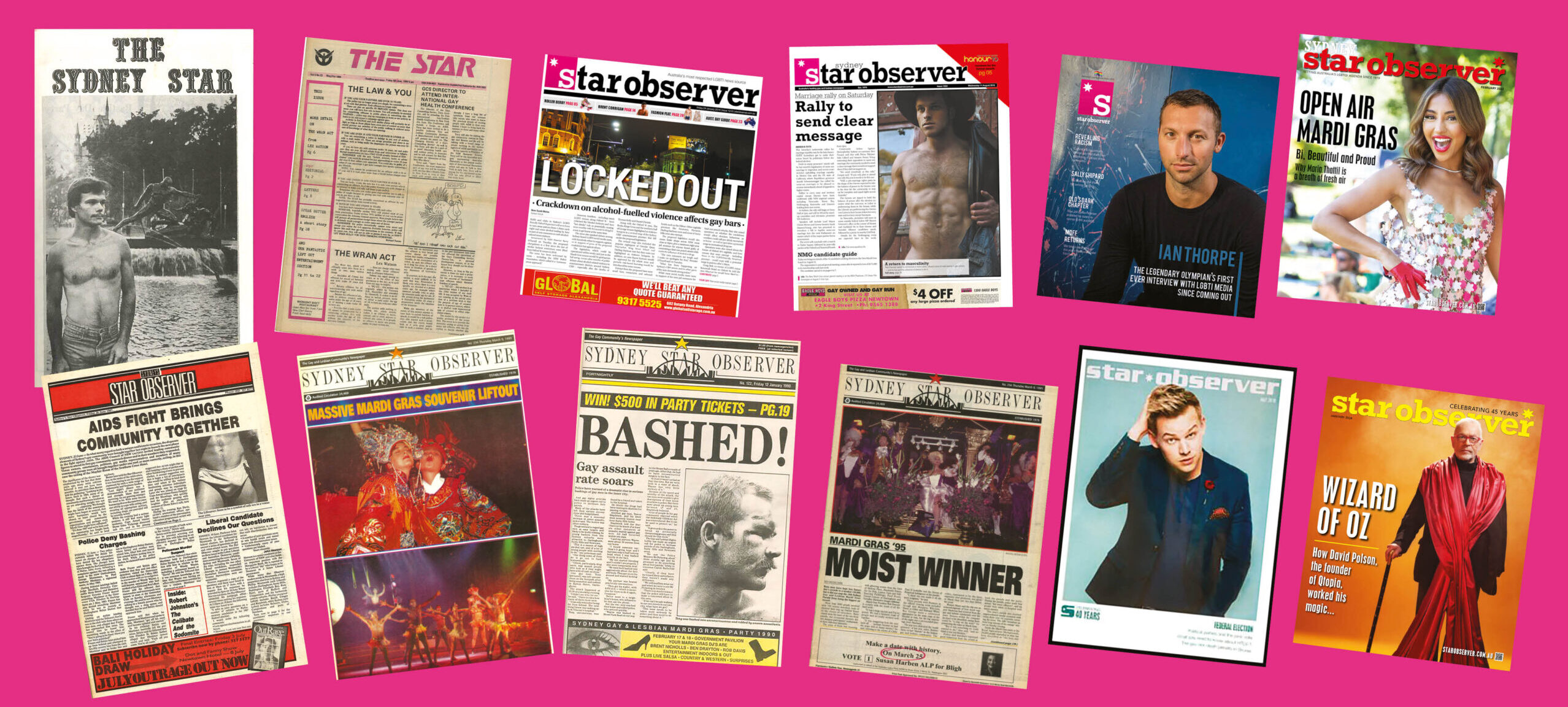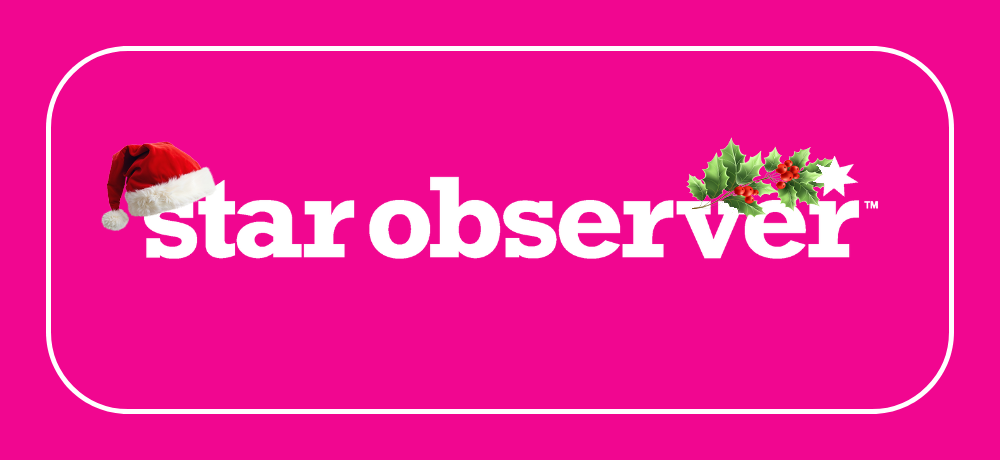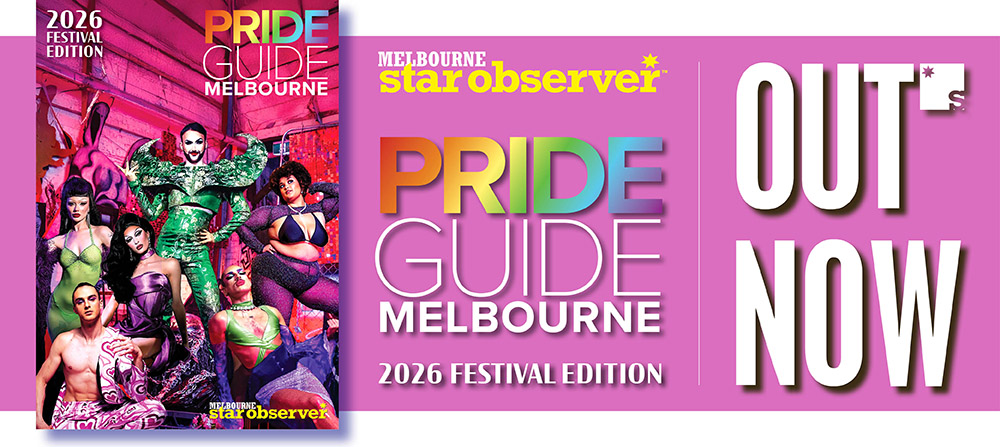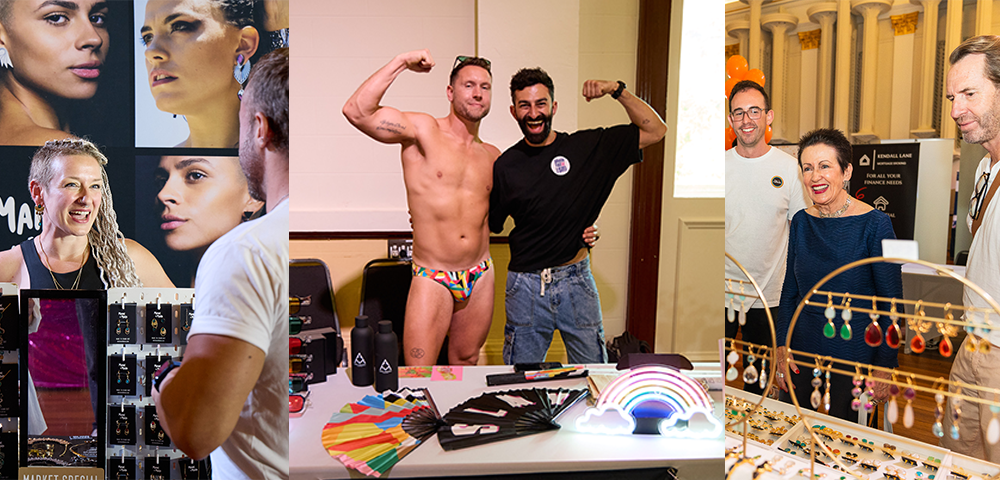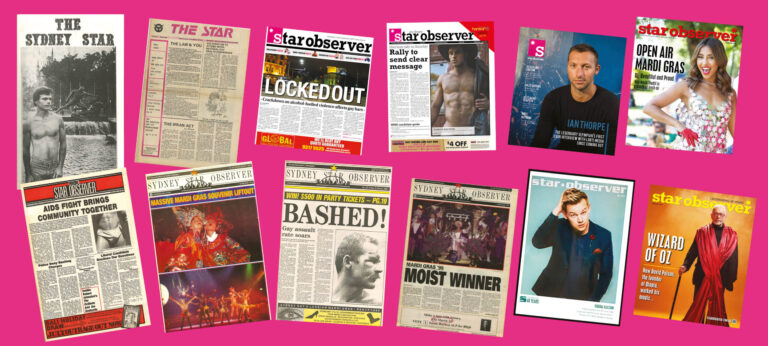
‘This is how the Star Observer changed my life’: Editor-in-Chief
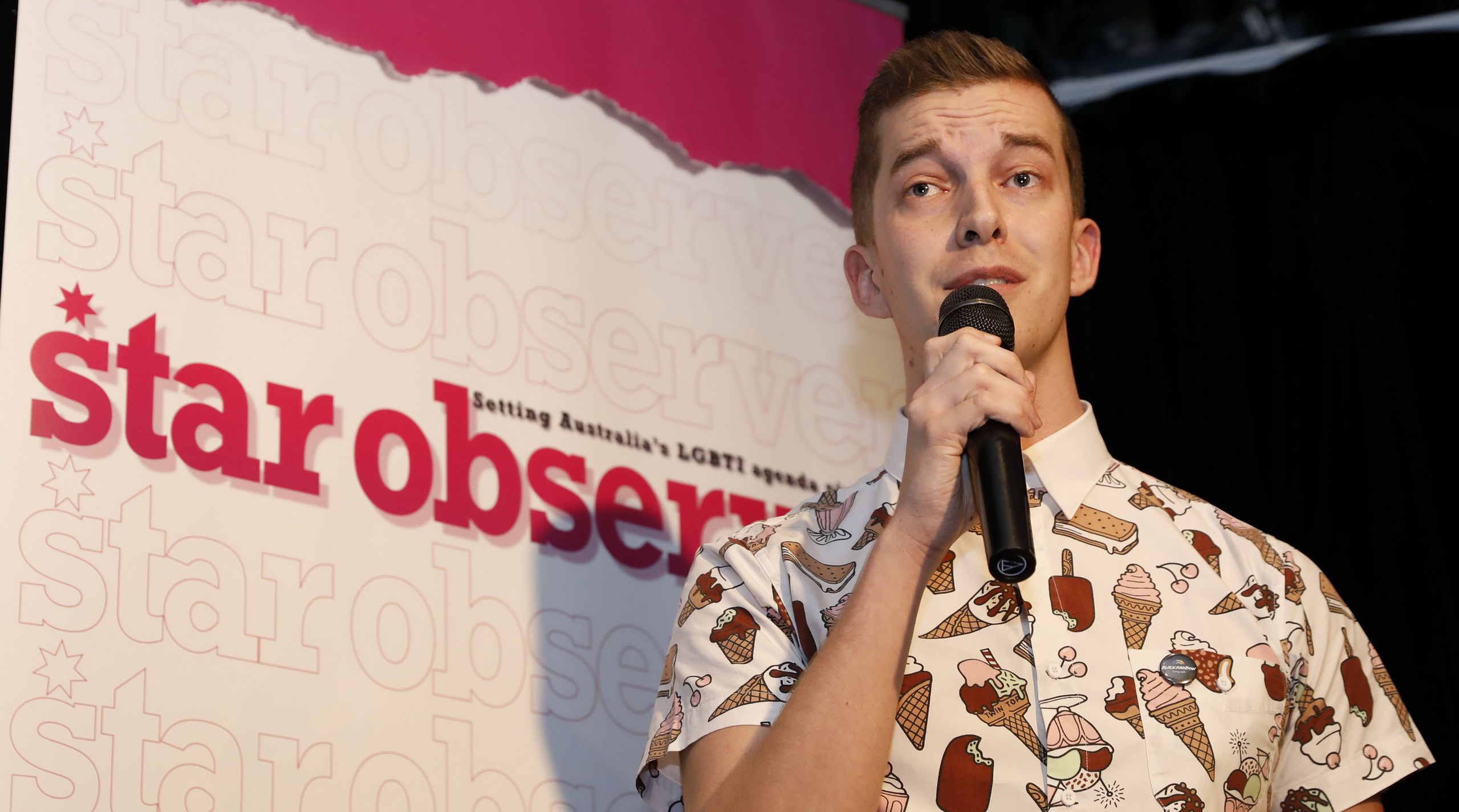
My first year out of high school was transformational.
I had somehow managed to survive six years of near-relentless homophobic bullying and a crisis of identity, the latter of which was forcefully bestowed upon me by classmates who regularly made me aware of why I was different to them, and why this made me second class. (It pains me that homophobic and transphobic bullying are still common experiences for young queer people, as they anxiously navigate adolescence and the schoolyard minefield.)
The moment I graduated, I left my regional Victorian town, along with the isolation, verbal abuse, and repressed sexuality that had formed many of my memories there.
As I moved closer to the city to commence university, I was excited to encounter a new world, filled with what I assumed would be diverse, accepting peers, among whom I would be able to express myself freely; it was a self-liberation I had desperately sought for the better part of the previous decade.
However, after arriving in Melbourne and beginning my tertiary studies, this personal catharsis seemed to elude me.
I knew no LGBTIQ+ people and struggled to meet them. I was completely unaware of any pre-existing social groups or support networks that may have helped accelerate my sense of belonging.
I was still very much the bookish and awkward student I had always been, with a penchant for horror films and R&B music. Yet I also had this long-standing ‘otherness’ hanging above me with no-one to talk to about it.
I was comfortable openly identifying as gay and had moved past my years of repression, but this felt almost irrelevant when I had zero connections to the queer community, a community I had only just begun outwardly expressing my place in.
As a result, I decided to start researching and get active.
This decision, I can say with no hyperbole whatsoever, changed my life.
I volunteered at the Melbourne Queer Film Festival (which I have now done for eight consecutive years), I enrolled in cultural studies classes that explored queer theory and gender, and one day, I came across a free monthly queer magazine called the Star Observer.
As a journalism student with a growing passion for human rights and social justice, the magazine spoke to me instantly.
Within its pages were stories of LGBTIQ+ people around Australia, people just like me, and it assuaged much of my loneliness. (I also ended up meeting a number of beautiful and supportive friends.)
I knew I wanted to be a part of the publication, and this drive ultimately led me (some four years later) to apply for a role with the publication as its Victorian journalist, which I successfully gained, before working my way up to the Editor-in-Chief’s chair in 2017.
Unfortunately, my earlier experiences, before painting my life in a rainbow hue, are still commonplace.
Sexual and gender diverse Australians without a support system or a lifeline to the LGBTIQ+ community are at risk of isolation, anxiety, depression, and of course, much worse.
These issues are often exacerbated by a number of compounding intersectional factors – such as where you live in Australia, your faith, your cultural background, and your gender identity – leaving many queer people underwater and struggling to stay afloat.
I want there to be no misunderstanding – when we’re young, and simultaneously discovering both our queerness and the many connotations steeped in prejudice and hatred that come with that, having no link to LGBTIQ+ communities can be fatal.
Fortunately, community groups and organisations provide vital lifelines for LGBTIQ+ people. I’d go as far as to say that without them, many members of our rainbow family wouldn’t be here today.
This is what the Star Observer has provided for me, along with countless others.
For 40 years, the Star Observer has informed, connected, and inspired Australia’s LGBTIQ+ communities, and kept them abreast of the latest queer stories and issues. It has provided a platform for everyday queer Australians, writers, activists, politicians, celebrities, and allies to dissect the state of LGBTIQ+ rights in Australia, helping to set the country’s queer agenda and bring together community members from all walks of life under a shared rainbow umbrella.
When the AIDS crisis plagued the community in the 1980s, and gay and bisexual men were frequently demonised by misinformed straight people (as well as the straight press), the Star Observer was a sanctuary for readers, a space where vital (and vitally accurate) information could be published on how to fight HIV and how to support those who were newly diagnosed.
If you were to pick up an issue from the time, you’d likely encounter heartfelt and tragic obituaries within its pages, a snapshot in history of the many lives lost to AIDS, and a beautiful collective outpouring of both grief and solidarity.
When homosexuality was progressively decriminalised in every state and territory (in NSW, this was in 1984), the Star Observer was there to hold anti-gay politicians to account, and, by sharing the voices of community advocates and experts, help to further the case for decriminalisation around the country.
And more recently, when LGBTIQ+ Australians were subjected to a harmful and unnecessary postal survey on what should have already been their basic human right – that is, the right to legally wed – the Star Observer ensured that the stories of everyday Australians were spread far and wide, to exemplify the wide-reaching and destructive implications of voting ‘No’.
The team spoke to people with diverse faiths, genders, racial backgrounds, and sexualities to deftly capture the historic moment in Australian history and to ensure it would be accurately remembered as a movement fought by everyday Australians around the country.
I’m under no illusion, and I hope our readers aren’t either – the Star Observer has helped to connect the community in significant and life-changing ways, giving community voices and stories a platform while educating and inspiring LGBTIQ+ people to stand up for their rights and advocate for change.
In the four years that I’ve worked for the publication, I know that our unique and diverse stories have touched the lives of many.
For example, in a piece titled ‘I’m here, I’m queer, and I’ve got wheels’, we spoke with gay and bisexual men living with a disability about the barriers and stigma they faced both within and outside of the LGBTIQ+ community, giving an often overlooked intersection of our rainbow family much-needed visibility.
In another, titled The Sydney gay beat murders revealed, we explored Sydney’s history of homophobic violence and murder against queer men, highlighting the NSW Police’s fraught involvement in the subsequent investigations and drawing attention to the many unresolved cases that exist today, leaving the families of those who were murdered without justice or closure.
And in yet another, titled Swiping left to sexual racism, we turned a mirror on the queer community and the ways members of the community can (subtly and overtly) perpetuate other forms of discrimination against marginalised communities, such as people of colour.
Whether it’s challenging bisexual stigma among queer people, giving voice to the experiences of Indigenous LGBTIQ+ people, or advocating for the right of young trans people to access hormone treatment without costly and time consuming barriers, my time at the Star Observer has been fuelled by a passion for covering the expanse of news, stories, and issues – whether they’re heartbreaking, inspiring, rage-inducing, or joyous – that make up our wonderful community.
And this is why queer press will always be vital.
While queer stories may increasingly be reported in the mainstream press, they will never be reported on with the same sensitivity, the same insight, the same diversity, or at the same volume that they are in queer community publications.
Stories and voices that would never see the light of day in mainstream publications are given life in the queer press, allowing our communities to stay connected and informed.
Whether you’re a young LGBTIQ+ person only just discovering their sexuality, with little to no support networks or links to the community, or a flag waving advocate helping to advance the rights of queer people around the country, publications like the Star Observer unify us all and ensure that no-one gets left behind.
I know I wouldn’t be the person I am today without it.
In case you missed it: Star Observer enters voluntary administration and is up for sale
